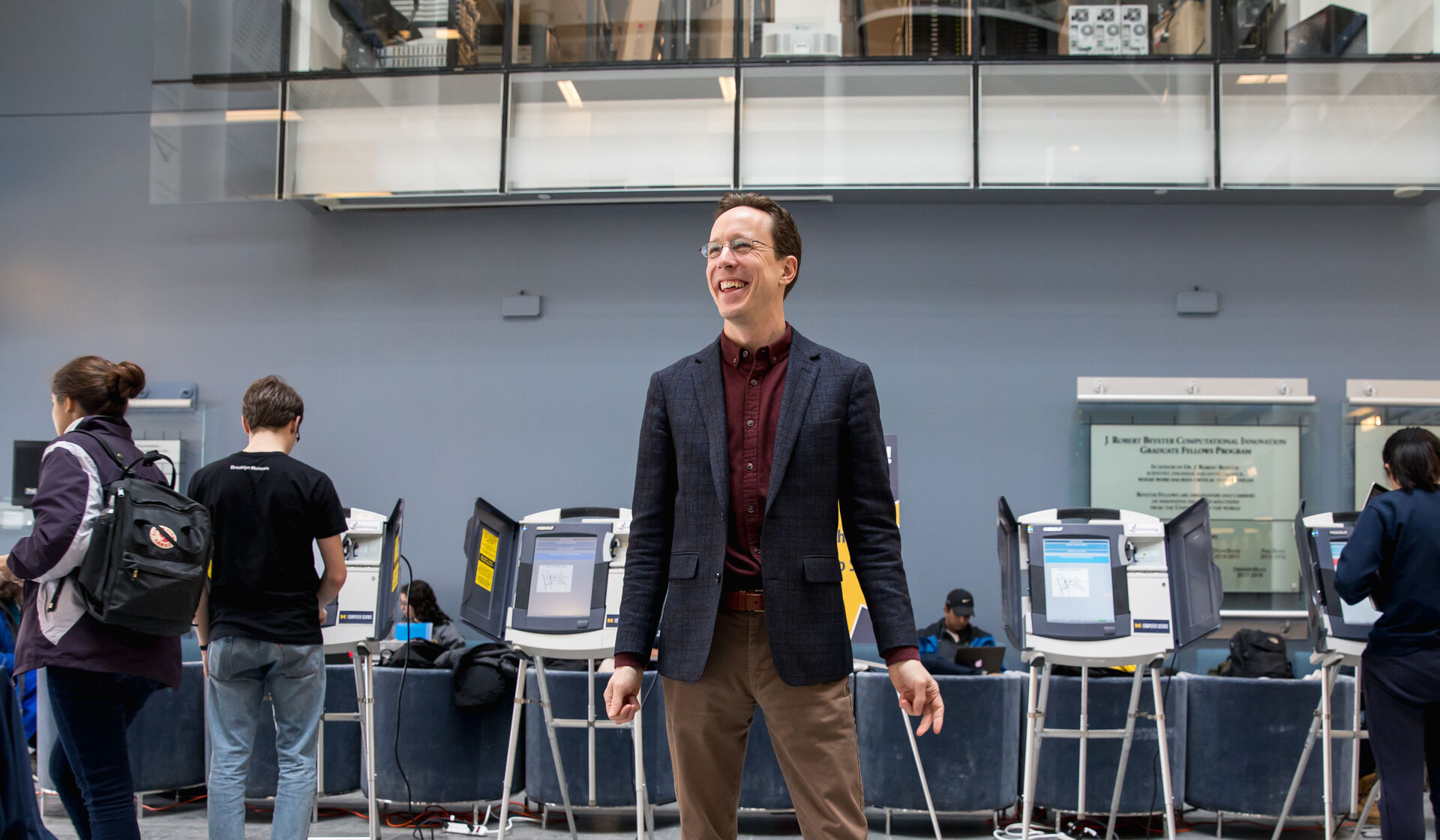Vivek Sankaran, JD’01, is a clinical professor of law at the University of Michigan Law School who advocates for the rights of children and parents involved in child welfare proceedings. His work focuses on improving outcomes for children in foster care by empowering their parents and strengthening decision-making processes in juvenile courts.
He also directs the Child Advocacy Law Clinic and the Child Welfare Appellate Clinic, through which law students represent children and parents in trial and appellate proceedings. He has written numerous articles focused on improving the child welfare system and has litigated cases before the Michigan Supreme Court. He also founded the Detroit Center for Family Advocacy, the first organization in the country to provide multidisciplinary legal assistance to families to prevent the unnecessary entry of children into foster care.
You’ve written that courts terminate the rights of parents far too often. Why does this happen? What can be done to change it?
A family’s poverty plays a critical role in the unnecessary termination of parental rights. All too often courts terminate relationships between children and their parents because their parents didn’t complete services necessary to reunify with them. But parents frequently struggle to complete services because they don’t have the funds to access high-quality services, or lack the resources, like transportation, to get to services. And the child protective system rarely offers families with the concrete supports they need like housing, employment, or financial assistance.
What are the long-term consequences for families and society of courts terminating the rights of parents at a higher than necessary rate?
Children will lose the ability to have meaningful relationships with parents who love them and care deeply about them. Even when parents aren’t able to physically care for their children, many are still able to provide crucial emotional support to their children. And when parental rights are terminated, kids often lose relationships with siblings, grandparents, and extended family as well, disconnecting them from a family unit that loves them.
Are there certain population demographics that are at a higher risk of having their parental rights terminated unnecessarily? If so, why is it the case?
Children of color are far more likely to have the rights to their parents terminated due to the same type of systemic racism that contributes to disproportionate outcomes in other systems, like the criminal justice system.
You’ve written extensively and worked on trying to improve outcomes for children in the foster system. What are some of the biggest challenges or barriers to improved outcomes for these children?
The lack of quality services and concrete supports for families both in and out of the child protection system, along with the lack of high-quality legal representation for children and parents plays a critical role in the poor outcomes we see in the system. Additionally, families are harmed by a punitive mindset that is pervasive in the system, as opposed to a focus on preserving relationships that are important to children.
Through the Child Advocacy Law Clinic and the Child Welfare Appellate Clinic, law students represent children and parents in trial and appellate proceedings. Tell us about this work and why it’s important for students to get this real life experience.
Through work in both clinics, law students learn critical skills on how to be effective lawyers, while also serving families in need. Our students have helped children reunify with their parents and have gotten appellate courts to reverse termination of parental rights decisions. The work of our students is felt throughout the state and has been felt for many years, as we have the oldest child advocacy clinic in the country and the first child welfare appellate clinic. By standing in kinship with those in need, our students not only learn how to be lawyers, but they learn what it means to embody compassion every single day. They serve families, and in the process, transform themselves into different human beings.





